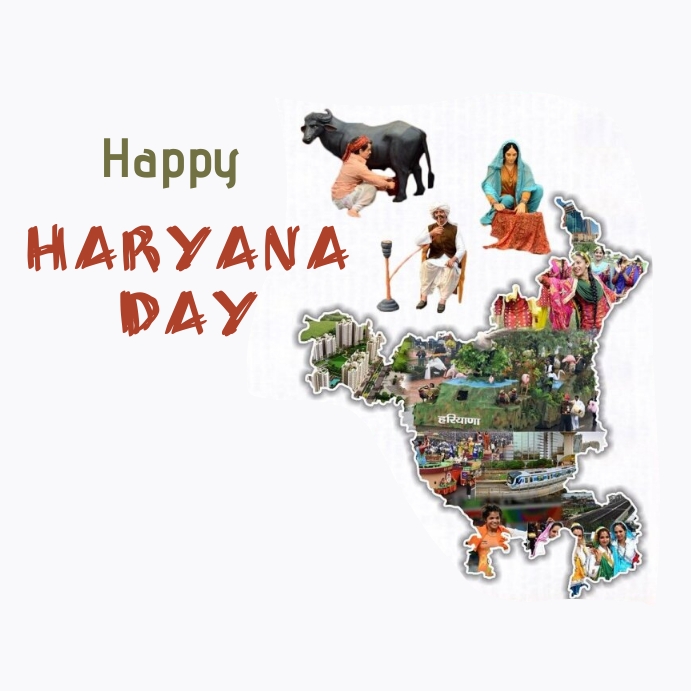Celebrating Haryana Day: Embracing Heritage and Progress
Haryana, the land of rich history and cultural diversity, celebrates its statehood on November 1st every year. Haryana Day is not just a date on the calendar; it’s a celebration of the state’s journey, its vibrant culture, and the indomitable spirit of its people. As we delve into the significance of this day, let’s explore the historical context, the cultural tapestry, and the modern developments that make Haryana a unique and integral part of India.
Historical Significance: Haryana’s historical roots run deep, dating back to the ancient Indus Valley Civilization. It was in this land that the great epic, the Mahabharata, was set. Over the centuries, Haryana witnessed the rise and fall of numerous dynasties, including the Mauryas, Guptas, and Mughals. However, it wasn’t until November 1, 1966, that Haryana emerged as a distinct state, carved out of the former Punjab. This historical decision aimed at addressing regional imbalances and better governance for its people.
Cultural Tapestry: Haryana is a melting pot of diverse cultures and traditions. The state’s folklore is a vibrant mix of music, dance, and art. The energetic Bhangra and graceful Gidda are two of the most famous folk dances that reflect the exuberance of the people. Haryana’s cuisine is a delectable blend of flavors, with staples like Roti, Dal, and Sarson da Saag. The state’s festivals, including Baisakhi and Teej, are celebrated with zest and zeal. Haryana’s handicrafts and traditional attire like Phulkari and Bandhani textiles are a testament to its rich artistic heritage.
Agricultural Powerhouse: Haryana is often referred to as the “Granary of India” because of its significant contribution to the country’s food production. The Green Revolution, initiated in the mid-20th century, found fertile ground in Haryana’s fields, resulting in increased crop yields and economic growth. The state’s agricultural success has transformed it into an industrial and technological hub, fostering economic development and prosperity.
Modern Progress: Haryana has not only embraced its agricultural roots but also transformed itself into a hub for industrial and technological advancement. Cities like Gurugram and Faridabad have become corporate hubs, home to numerous multinational companies. The state has also made significant strides in education and healthcare, with reputed institutions and hospitals that cater to the needs of its residents.
Conclusion: Haryana Day is a time for reflection, celebration, and appreciation of the state’s heritage and progress. It is a day to honor the resilience and hard work of its people, who have contributed immensely to the nation’s growth. As Haryana continues to march forward, it remains a shining example of how history, culture, and progress can coexist harmoniously, making it an integral part of India’s rich tapestry.

